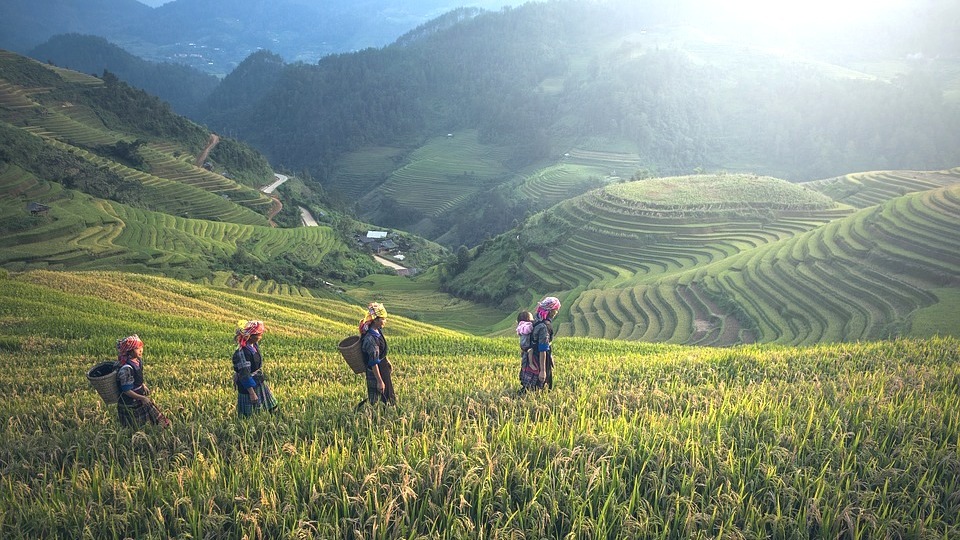Food and Ethics
Food and Ethics From many quarters, FAO in the lead, we hear that the question of food, and its availability,
Read more
 Sustainable nutrition is a principle based on a consumption of food with healthy nutritional characteristics, which requires a low ecological footprint in terms of land use, water resources used and factors necessary to produce it, with low carbon emissions and nitrogen. Sustainable food must therefore be attentive to the conservation of biodiversity and ecosystems, rich in local and traditional foods, fair and accessible to all. To continue this principle, however, it is necessary to review the vision that lies at the center between man and production; between man and nature; reporting the company towards a synchrony with the laws of the ecosystem. Today, modern agriculture, despite many technological advances, has created, in most cases, a production paradigm somewhat distant from the functional models of the ecosystem. We must therefore revise these principles by promoting a new agricultural model that guarantees man and the environment. The solution to this question lies in the agroecology that, together with the principle of Food Sovereignty, revises the models of production, distribution and access to food. We need to retrace a concept of global well-being that, by putting the ecosystem and society on the same level, can guarantee a new ethical and economic paradigm. Today, modern agriculture and globalization have diminished the focus on sustainability in favor of the intensification and industrialization of agricultural systems. The result of this phenomenon has been the vertiginous increase in globalized food production, but without bringing global improvements in the nutritional field. All this without solving the problem of hunger in the world, but even aggravating it. We are facing an agricultural system that has increased hunger in the world, increased diseases due to poor diet (obese, chronic disorders, etc.) and deteriorated, in just the arc of a little more than half a century those resources wisely preserved, protected and improved from our ancestors. It is urgently necessary to change direction and the reference term from which to start is precisely a new concept, integral, of sustainable nutrition.
Sustainable nutrition is a principle based on a consumption of food with healthy nutritional characteristics, which requires a low ecological footprint in terms of land use, water resources used and factors necessary to produce it, with low carbon emissions and nitrogen. Sustainable food must therefore be attentive to the conservation of biodiversity and ecosystems, rich in local and traditional foods, fair and accessible to all. To continue this principle, however, it is necessary to review the vision that lies at the center between man and production; between man and nature; reporting the company towards a synchrony with the laws of the ecosystem. Today, modern agriculture, despite many technological advances, has created, in most cases, a production paradigm somewhat distant from the functional models of the ecosystem. We must therefore revise these principles by promoting a new agricultural model that guarantees man and the environment. The solution to this question lies in the agroecology that, together with the principle of Food Sovereignty, revises the models of production, distribution and access to food. We need to retrace a concept of global well-being that, by putting the ecosystem and society on the same level, can guarantee a new ethical and economic paradigm. Today, modern agriculture and globalization have diminished the focus on sustainability in favor of the intensification and industrialization of agricultural systems. The result of this phenomenon has been the vertiginous increase in globalized food production, but without bringing global improvements in the nutritional field. All this without solving the problem of hunger in the world, but even aggravating it. We are facing an agricultural system that has increased hunger in the world, increased diseases due to poor diet (obese, chronic disorders, etc.) and deteriorated, in just the arc of a little more than half a century those resources wisely preserved, protected and improved from our ancestors. It is urgently necessary to change direction and the reference term from which to start is precisely a new concept, integral, of sustainable nutrition.
Guido Bissanti
Food and Ethics From many quarters, FAO in the lead, we hear that the question of food, and its availability,
Read moreShort supply chain The short chain, which is increasingly being talked about, is a production organization characterized by a limited
Read moreRewrite the world agricultural policy Archaeological data and historical finds tell us that primitive man founded his diet on the
Read moreFrom Habitats to Agroecology The reconstruction of the agricultural fabric and the connection with the ecological one, after the devastations
Read moreFood waste In the meantime, let’s clarify what is meant by food waste: in general, the term identifies the set
Read moreChlorpyrifos and children’s health Il Salvagente, the newspaper specializing in consumer scams, wanted to carry out new tests regarding the
Read moreHow many pesticides we eat without knowing it In an age in which the preservation of nature and the planet,
Read moreOne third of the food produced in the world is thrown away Sustainable nutrition involves eating nutritionally healthy food, with
Read moreFrom food justice to social and ecological justice Our world, and its history, have now come to a showdown. We
Read moreHow much bottled water costs us When we ask the question: How much does bottled water cost? We must give
Read more